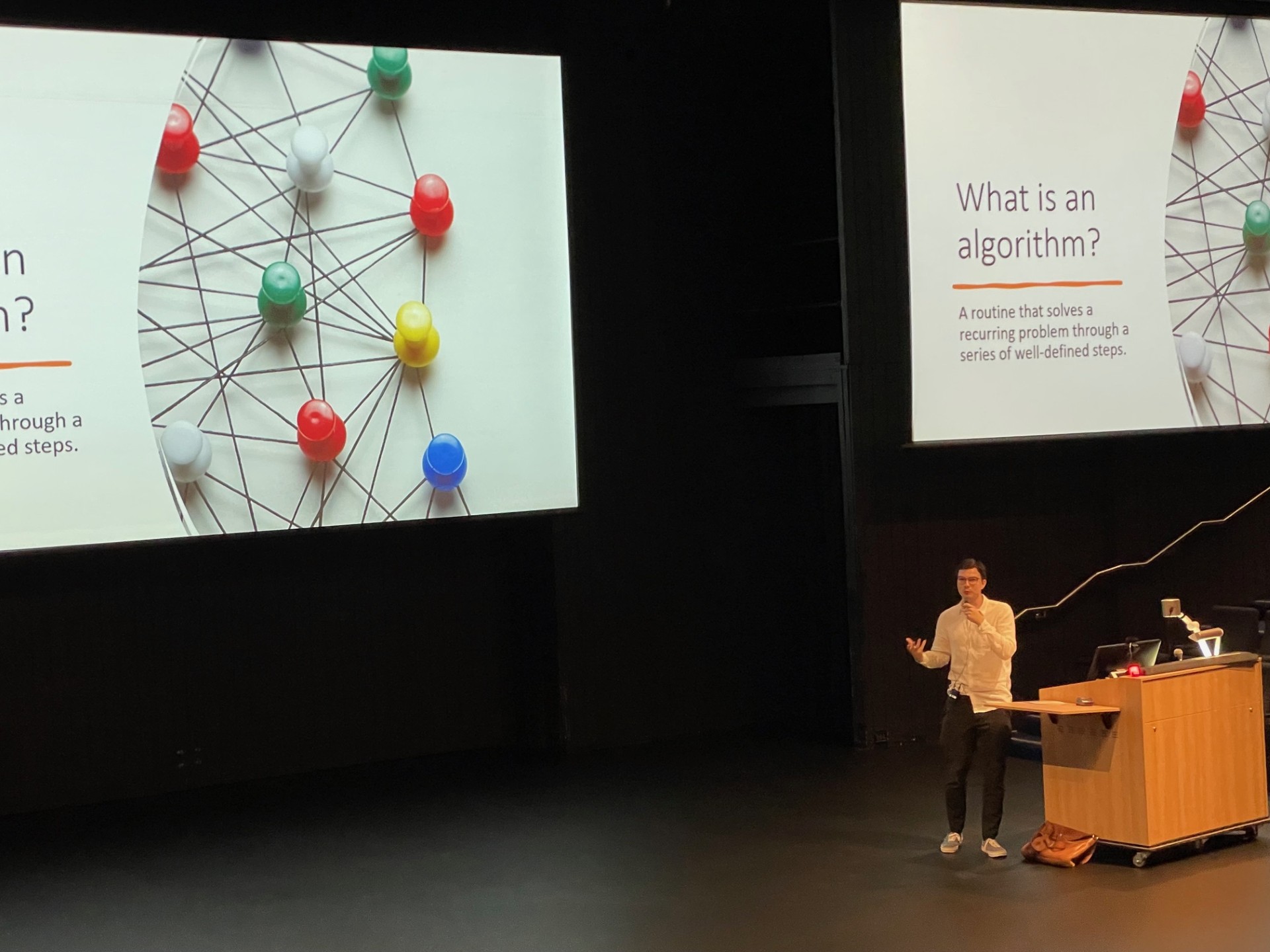Recently HDR student, Justin Miller gave a lecture to first year digital culture students on algorithms. The discussion centered on defining what an algorithm is and exploring its practical applications across various fields. An algorithm, as explained, is essentially a routine or procedure that solves recurring problems through a sequence of well-defined steps. This foundational concept in computer science is pivotal in driving the efficiency and effectiveness of computational processes.
The lecture highlighted several iconic examples where algorithms play a critical role:
Google’s Page Rank Algorithm: Used to optimize search results.
Dijkstra’s Algorithm: Crucial in GPS technology for finding the fastest route.
Boyer-Moore String Match Algorithm: Empowers efficient text searching within browsers.
During the lecture, various computational problems were also discussed, emphasizing the diversity of challenges that can be tackled through algorithms, such as counting, searching, sorting, and even complex machine learning tasks. For instance, sorting algorithms like Bubble Sort help organize data efficiently, while search algorithms like Binary Search optimise the retrieval of information.
The significance of algorithms extends beyond their technical applications. They are integral to problem-solving in computation, where they help break down complex problems into manageable sub-problems. This modularity is essential for developing scalable and robust solutions in software engineering, data analysis, and beyond.
Moreover, the discussion on the ethical implications of algorithms, such as algorithms that have been used for offender profiling, underscored the importance of responsible algorithm design. It’s crucial to ensure that algorithms do not perpetuate biases.
Understanding algorithms is fundamental not only for aspiring computer scientists but for anyone involved in the digital age, where algorithms influence many aspects of our lives. Their development, implementation, and refinement continue

